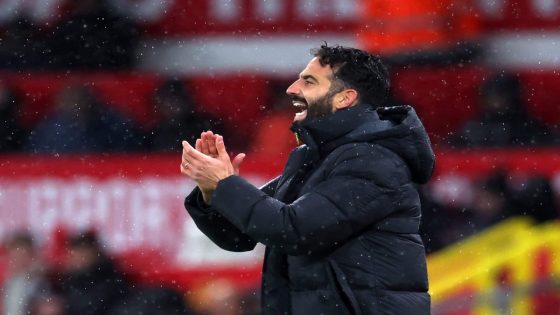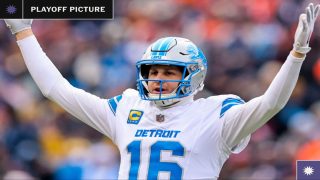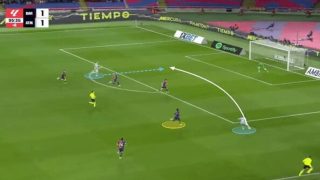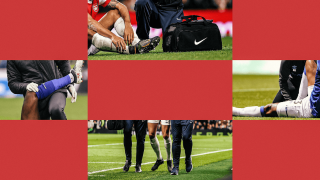Two wins, one draw, and back-to-back defeats.
Five matches are not enough to draw grandstanding conclusions about the Ruben Amorim era at Manchester United. The Athletic’s data department prefers to wait until 10 Premier League matches have been played before engaging in statistical analysis, and there have been too many odd streaks of variance for anyone to claim Amorim is the right or wrong man to ‘fix’ the club after 450 minutes of football.
What we can do, however, is attempt to examine some of the good and not-so-good facets of United’s play in Amorim’s opening five games.
Here’s what caught our attention.
United lack roadrunners and precise passers
When Sporting CP beat Manchester City 4-1 in early November, Pep Guardiola credited Amorim’s side and their energy. United’s 2024-25 squad appear some way off that standard.
In several of Amorim’s interviews over the past two weeks, he has highlighted how United need to improve their physical capacity and ability to press and tackle as a collective. His rotation-heavy approach suggests that 1) he doesn’t believe his squad has enough players with the fitness to act out his ideas and 2) he prefers to save the legs of the players he trusts, rather than risk burning them out by giving them the jobs of one and a half players.
Amorim’s decision to replace Bruno Fernandes with Mason Mount in the 76th minute against Nottingham Forest on Saturday raised eyebrows. The side was 3-2 down, yet the head coach was removing United’s most obvious route to an equaliser.
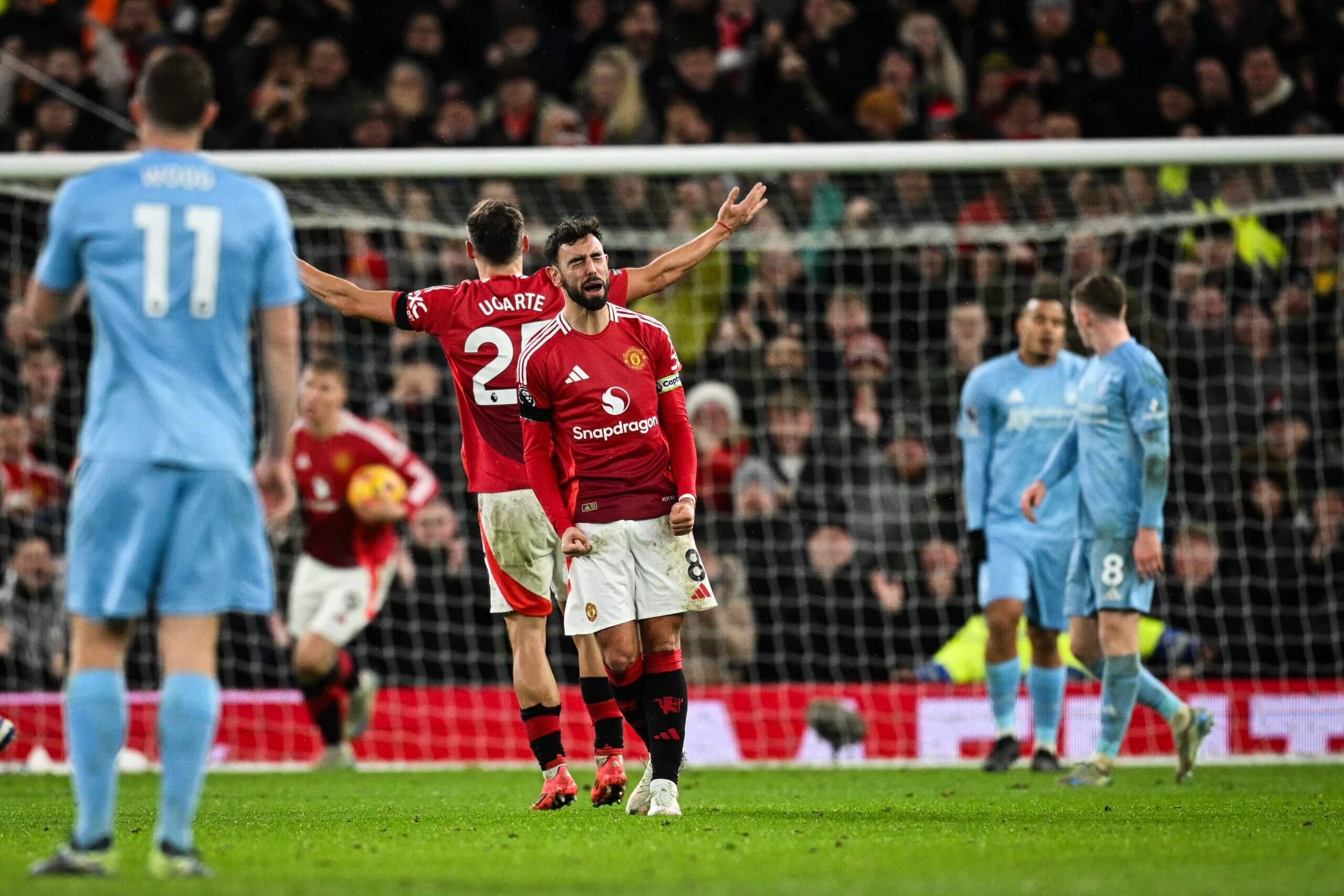
“Bruno is a danger near the box, he had scored one goal, but he was tired with transition,” said Amorim after the game. “I could let Bruno Fernandes (stay on), but I felt with Mason Mount, he is also good with set pieces and can score because he’s very technical, and we needed fresh legs. If you saw the game: transitions, so if you lose the ball and suffer another goal, it was over. So I used all the substitutions.”
Amorim has linked off-ball physicality to United’s sloppy approach in possession. Forest’s second goal at Old Trafford illustrated the issue well — Fernandes misjudged a pass to Leny Yoro, allowing the away side to win possession easily and flood into dangerous areas at pace.
This issue won’t be solved easily via the January transfer window (United are not expected to have much cash available to spend). Instead, Amorim will need to build through gradual improvements at United’s Carrington base.
“They need time to train,” said Amorim about his centre-backs holding onto the ball for prolonged periods when looking to break down Forest. “Two weeks and the focus is, ‘Don’t lose the ball with sloppy passes’. They have more confidence to take the ball and play between the lines.
“Against low blocks, you have to take risks.”
(As a warning, please don’t get too focused on publicly available running statistics, which can be unreliable. Premier League clubs prefer to keep such data in-house because it is expensive to collate. Clubs also tend to use those numbers to help with player fitness and load management, rather than for tactical conclusions.)
Manuel Ugarte is establishing a significant role
Ugarte’s start to life at United has been strange, arriving towards the end of the summer window and being described as a long-term project by Amorim’s predecessor, Erik ten Hag.
Ruud van Nistelrooy’s interim period at United provided Ugarte, 23, with a boost, and now Amorim — with whom he worked for two seasons at Sporting — has lifted him again.
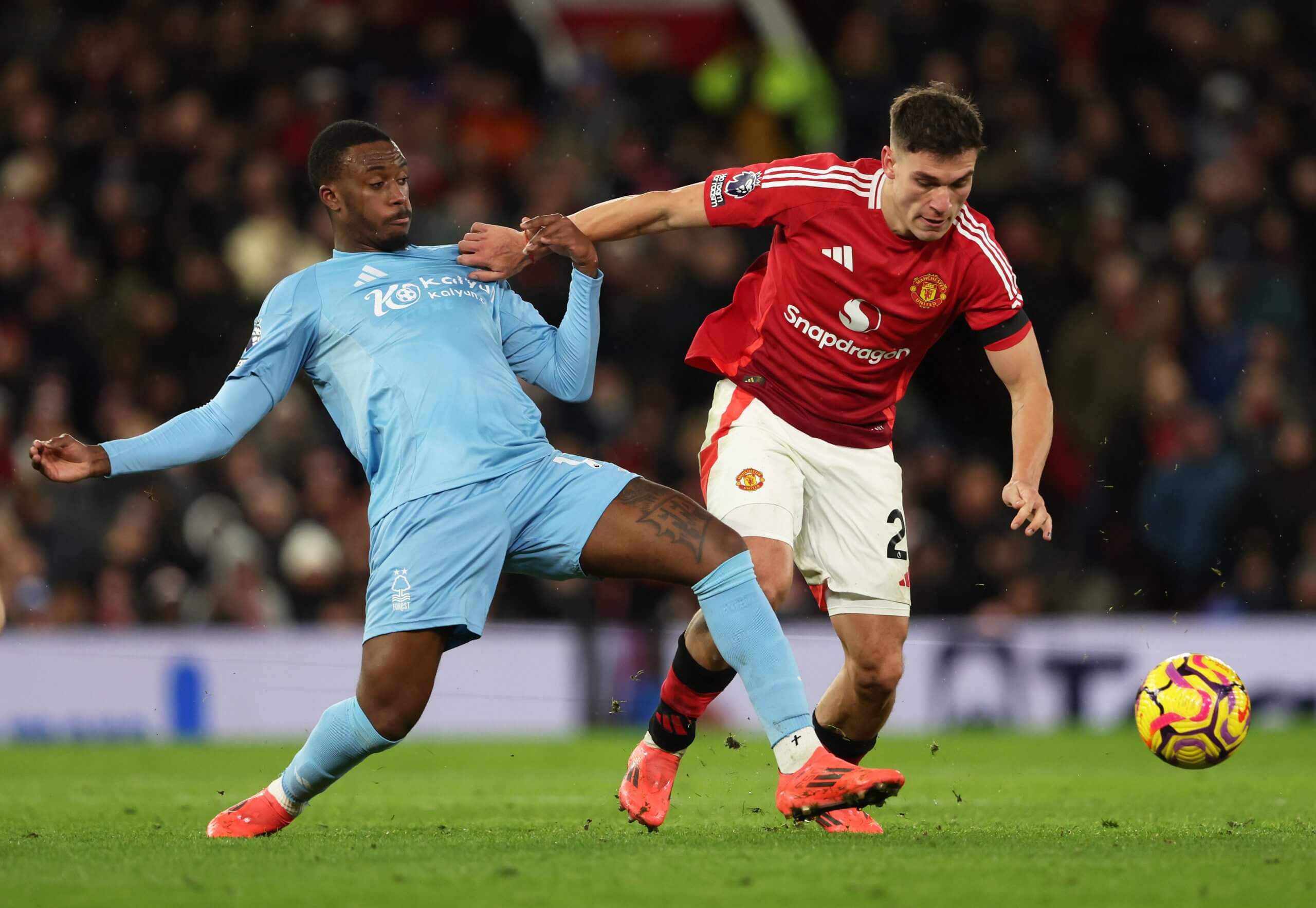
The Uruguayan has registered 317 minutes of game time across United’s last five matches (three starts and two substitute appearances) and looks more comfortable in a 3-4-3, where Amorim tasks initial progressive passing responsibilities to the back three and wing-backs. With fewer creative responsibilities, Ugarte can focus on what he is best at: winning the ball. He has become a busy component of the team’s out-of-possession approach, snapping into tackles and closing off passing lanes.
His passing has been a welcome bonus rather than a necessity, but that doesn’t mean Ugarte disregards playing in the final third. His growing confidence has seen him attempt more through balls for team-mates, and his assist for Rasmus Hojlund’s winner against Bodo/Glimt saw him attack the right half-space before pulling the ball back expertly for his striker.
Amad could be United’s most important attacker
Small in size, but big in talent was one of Amorim’s compliments for Amad. The head coach has a history of placing left-footed players at right wing-back and Amad, 22, appears to have nudged ahead of Antony and others.
“He’s very good playing in that position, but also playing between the lines,” said Amorim after the 4-0 victory over Everton. “He has good control and he seems faster with the ball than without it. He can play in both positions and in different systems.”
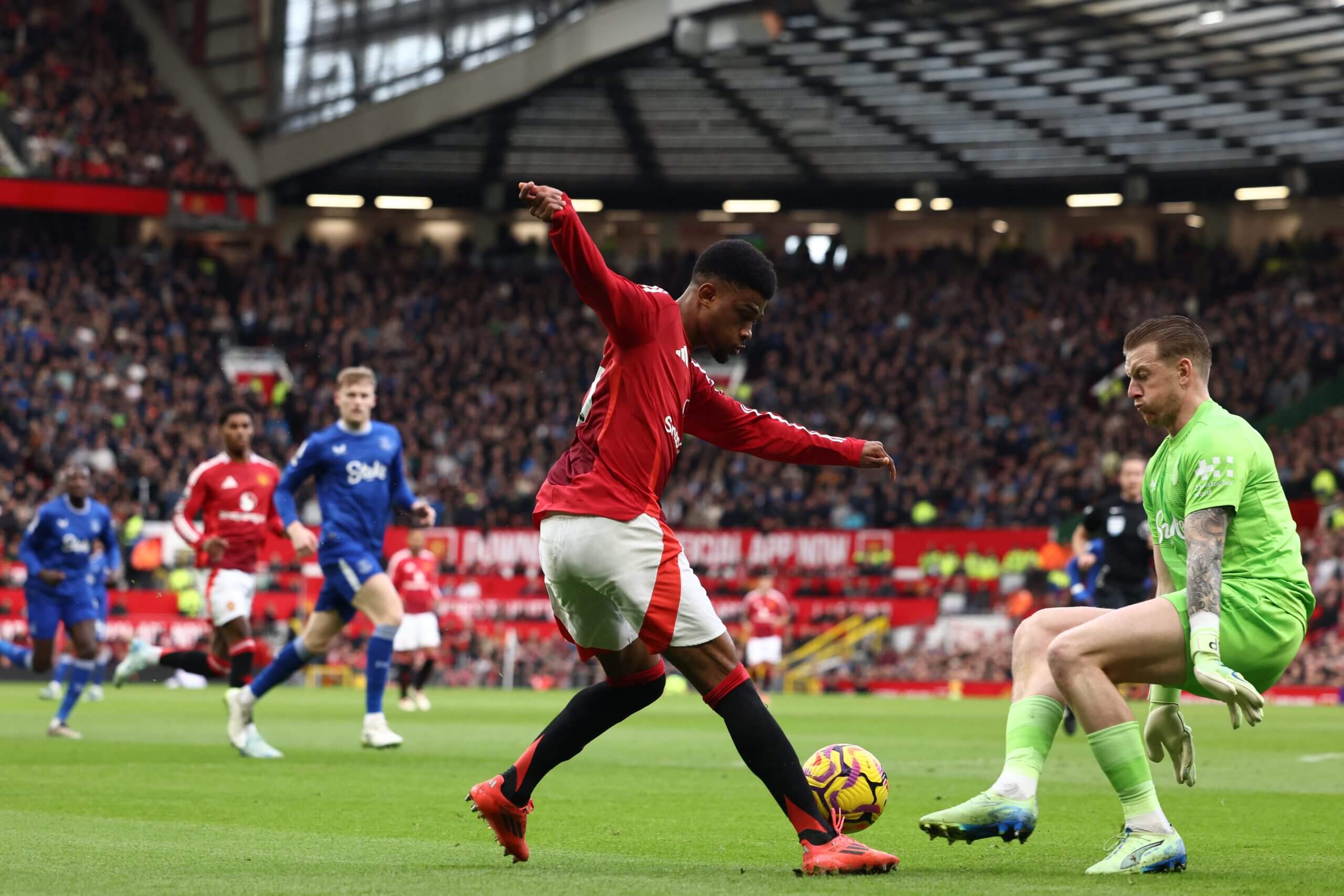
Amad is one of a small handful of United players who can beat a defender on the outside down the flank and reliably cross or pass the ball into the final third. That makes him essential in an underwhelming attacking unit that can struggle to break through stubborn defences, registering four assists across four league games.
Lisandro Martinez must bide his time
It has been a difficult 2024 for Martinez in a United shirt, missing 15 club matches due to calf and knee injuries. The centre-back has steadily rebuilt his form and fitness, but recent changes have necessitated a recalibration to his game.
The 26-year-old has featured in three of Amorim’s five matches in charge, predominantly working as the left-sided centre-back. This role makes the most of his exceptional passing, but it can make him uncomfortable when facing pacy forwards who challenge him in wide areas. Bodo/Glimt’s second goal at Old Trafford came from a long pass and run down United’s left that neither Tyrell Malacia nor Martinez was equipped to deal with.
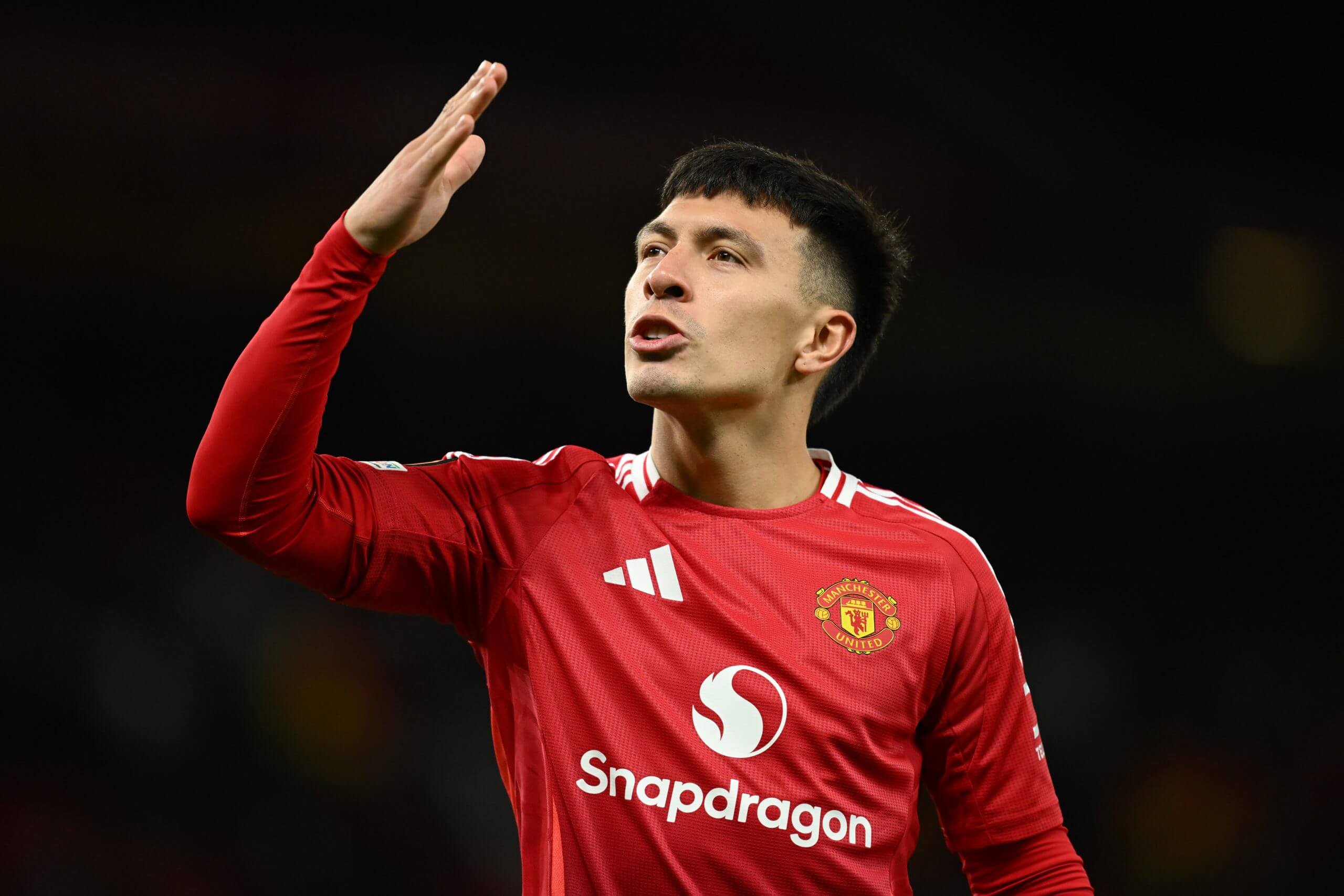
Martinez is among several players encountering issues when United defend set pieces. Martinez was one of United’s best players in his debut 2022-23 season but, like others, could benefit from greater consistency around him. Amorim’s approach to rotation means the defender may have to gut it out for the coming weeks and hope things settle into place.
There will be churn
Before facing Arsenal, Amorim said a “storm will come” involving his team.
“We are going to have difficult moments and we will be found out in some games. I know my players and I know football and I follow football. We are in the point where we are putting simple things in the team, without training.”
A congested football schedule means the head coach cannot fit in adequate training time with players, so he and his staff are looking to employ workarounds (United players train in a reduced physical capacity, jogging or walking through drills in the 48 hours after playing matches).
Amorim has asked the media to not get too obsessed with formations and starting lineups and instead focus on the “idea” he is trying to convey to his new group of players. Early signs are promising. When they attempt to build from the back, there’s a focused intent about where to stand, where to pass and where to move with the ball. Thinking about what to do next is better than not thinking, although it’s not quite as good as not needing to think because the movements have become so well-rehearsed in your mind and body. Those automated patterns will come with more training.
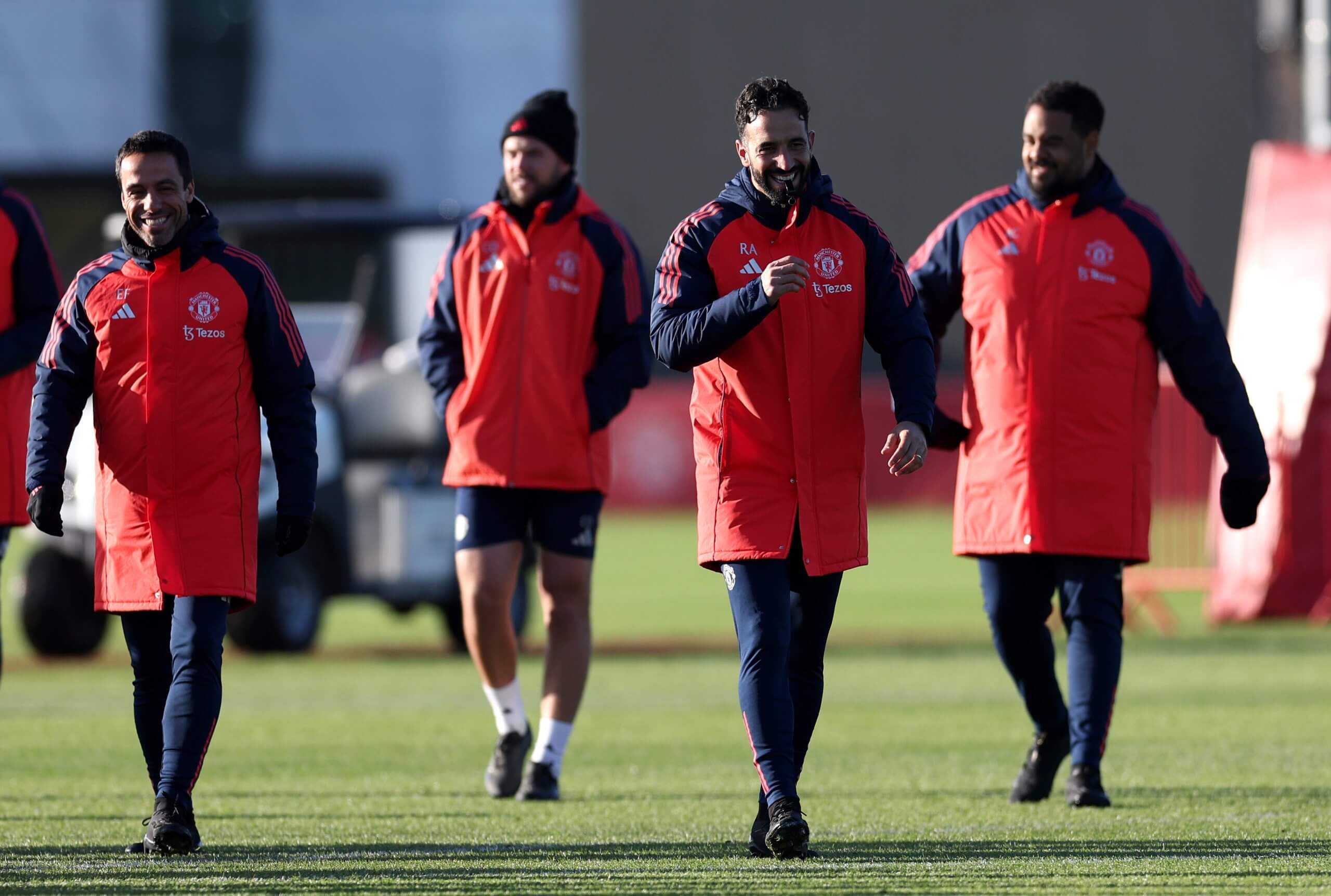
Things continue to change above the head coach and in the team around him. Amorim’s era has barely begun, but we’re getting a sense of what might need to happen next.
And as a special thanks for reading until the end, here’s a collection of things we are keeping an eye on as the season develops. Please feel free to add your own in the comments…
- Which position will Fernandes make his own? As a No 10 or a deeper role in central midfield?
- Could Harry Maguire take over the middle centre-back role?
- Can Antony adapt to wing-back?
- Amorim’s press conferences are refreshingly honest. Will that level of candidness continue as the season progresses?
- How do United work around their injury issues at left wing-back?
- Which player will make the left attacking-midfield slot their own?
- Can United address their issues at defending set pieces?
- Is there anyone to take over from Fernandes in taking set pieces?
(Top photo: Clive Brunskill via Getty Images)
